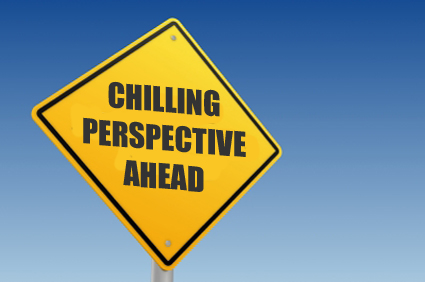Want to know what homebirth midwives really think?
Read From Calling to Courtroom, A Survival Guide for Midwives. I should warn you in advance, though, that it may turn your stomach.
It may surprise you to find that midwives are every bit as concerned about legal action as the obstetricians they deride. They’re not worried about malpractice since by refusing to carry insurance they have rendered themselves judgment proof. No, homebirth midwives are worried about legal prosecution for practicing in violation of state laws. The book is a compendendium of strategies designed to prevent prosecution, or deal with it once it has occurred. It can be summed up very briefly: to protect yourself, a homebirth midwife should do anything, say anything (true or not), betray anyone and (most important) hire a licensed lawyer.
1. In order to prevent prosecution, homebirth midwives should lie to their patients.
Apparently informed consent, which homebirth midwives harp on endlessly in their criticism of obstetricians, is only for doctors, not for midwives. According to midwife Elizabeth Camp:
In the future my motto is, “No witnesses”. If I ever have to cut an episiotomy to save a baby’s life, I would ask everyone to turn their backs and turn off all video cameras. I would say to the mother, “I’m sorry, I had to TEAR you to deliver your baby quickly” (ok, so you tore her with scissors). I do not carry Pitocin anymore. For those midwives who do carry Pitocin, I would advise them to never admit it to anyone who has the ability to testify (that is, anyone except your husband). If a midwife ever feels the need to inject Pitocin or administer any kind of drug, such as Methergine, she should refer to such substances as “minerals.”
Be careful how you talk to your apprentices. You may think, “Not her, she would never betray me.” In my experience, there were only a few out of hundreds of midwives in my state who stood by me and defended me.
Be careful how you talk to your clients. Always use terms such as “If I were you, I would…” instead of diagnosing and recommending. Always have them initial on their charts when they refuse to get lab work or choose not to see a doctor.
Be careful where you keep your medical supplies. A search warrant can be issued without warning to you at any time. Do not chart emergency medical procedures. Use a “made up” code that only YOU understand. Don’t ever think it can’t happen to you. I believe I was careful BEFORE I was prosecuted. I am even more careful now.
In other words, lie to your patients, lie to your assistants, lie in your charting. Be sure to set things up so that if anything goes wrong the patient will be blamed.
2. Hire a licensed lawyer.
No self-proclaimed lay lawyers for these women. Evidently no concept of irony, either.
Want another reason that a midwife needs a lawyer? Look at the previous section of this book, describing the legal system. Lawyers go to school for at least seven years, take a grueling bar exam (which not everybody passes), then go out into the “real world” to learn how to research, argue without ticking off a judge, and apply classroom knowledge to courtroom situations. This book helps the midwife understand the system and not be shocked the first time she gets a search warrant or cease and desist order. It will not leave the midwife knowledgeable enough to represent herself. A midwife should feel no more comfortable representing herself than a lawyer would feel doing a midwife’s job (besides, most of them hate the sight of blood). The rule of thumb is this: if they have a lawyer, so should you. After all, it’s your freedom and your professional life that is at stake.
3. Don’t worry about dead babies; some babies just die.
This horrific passage comes from Geradine Simkins, former President of the Midwives Alliance of North America (MANA):
In the mid-1990’s, a well-known midwife was involved with a couple of baby deaths in out-of-hospital settings in Michigan. During one of the investigations the story became a media circus—as many of the midwife and homebirth stories do. The American public loves drama, and live-versions of drama are relished even more than fiction… This is the kind of situation that should not be made into a mini-drama. You know, babies die; it’s part of life. And only those entrenched in the bio-technical model think that that it doesn’t, or shouldn’t happen. I have traveled extensively in other countries, mostly developing nations, and people understand this reality elsewhere. I once arrived at the house of a midwife in another country the morning a baby had died in a homebirth. I found that the family had embraced the midwife and was so grateful to her—because the mother did not die. They were understandably sad about the baby, but families expect that a baby might die. A mother dying is considered beyond tragic. It’s a matter of perspective.
I’ve never seen a clearer expression of homebirth midwives’ the bone chilling lack of concern for dead babies.
When you tell women that they should accept their babies deaths and just be grateful that they didn’t die, too, you’ve forfeited any claim to being considered a professional of any kind.
When you insist that women should just get over the death of their baby because African women have it worse, you have demonstrated utter contempt both for women (generally women of color) around the world who suffer repeated heartbreak, and contempt for the emotional pain of your own patients.
There’s more, much more, along these lines in From Calling to Courtroom. I suggest this document be invoked at any legislative hearing on licensing homebirth midwives or expanding their scope of practice. Nothing can more clearly illustrate the fact that homebirth midwives are not professionals, and are unworthy of licensing, than their own words.


